About Our Winery
Imagine tasting wine as it was meant to be—pure, alive, and untamed by modern chemistry. This is the radical vision behind Petachya Winery, where brothers-in-law Petachya Wittenstein and Yaakov Singer are crafting kosher wines that challenge everything we thought we knew about winemaking in Israel.
Nestled in the ancient Ella Valley, their boutique operation produces wines with zero additives, no sulfites, and absolutely no oak—just hand-picked grapes allowed to express themselves through natural fermentation. As we taste through their portfolio, from their standout Argaman to experimental wines made from table grapes, the conversation reveals how deeply philosophical their approach truly is.
“When there’s wild yeast fermentation,” Petachya explains, “I like looking at it as this big battle where different types of soldiers are doing their thing.” This battlefield of competing yeasts creates complexity and character impossible to achieve with commercial strains. The result? Wines that taste profoundly different—cleaner, more vibrant, and with a distinctive purity that surprises even experienced wine lovers.
The winemaking journey takes on additional meaning when set against the backdrop of Israel’s current conflicts. The vineyards themselves bear witness to history unfolding, with the team harvesting grapes as missile interceptors boom overhead. “This is Eretz Yisrael,” they reflect, the experience becoming part of their wine’s unique terroir.
Whether you’re fascinated by natural winemaking techniques, curious about Israel’s indigenous grape varieties, or simply searching for kosher wines that offer something genuinely different, this episode opens a window into a world where ancient traditions meet modern innovation. Pour yourself something special and join us on this extraordinary journey into the heart of authentic winemaking.
Taken from Simon Jacobs’ write-up about our podcast
listen to Natural Alchemy: Crafting Kosher Wine Without Compromise


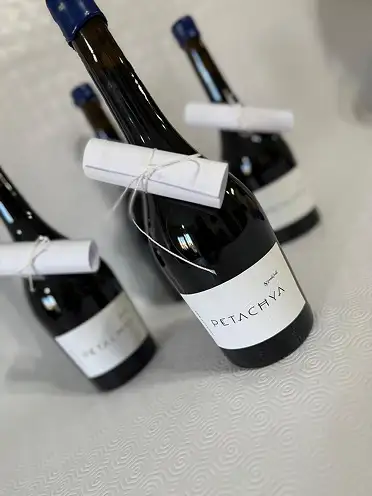
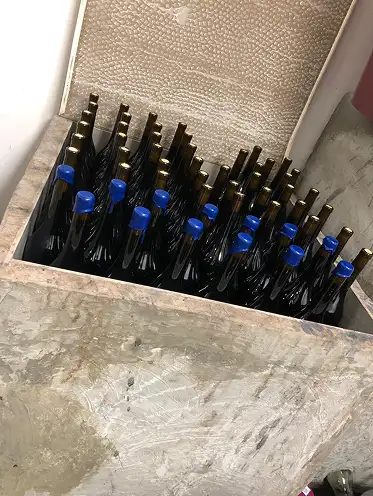

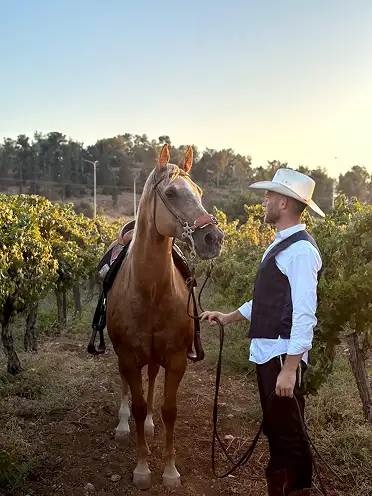
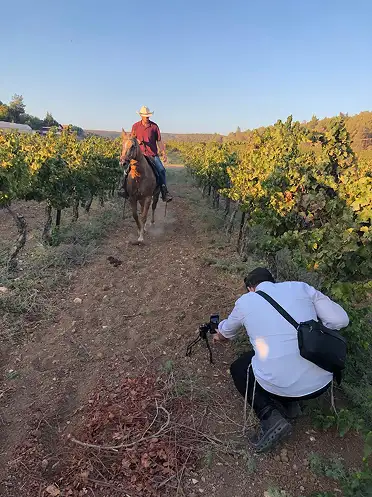

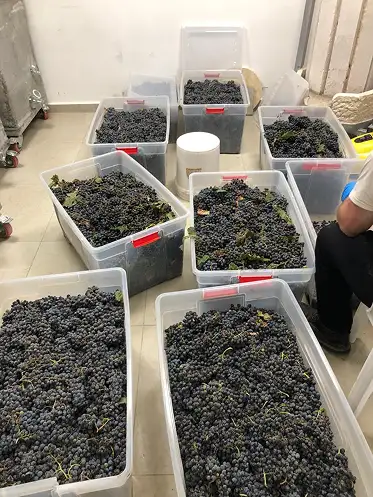
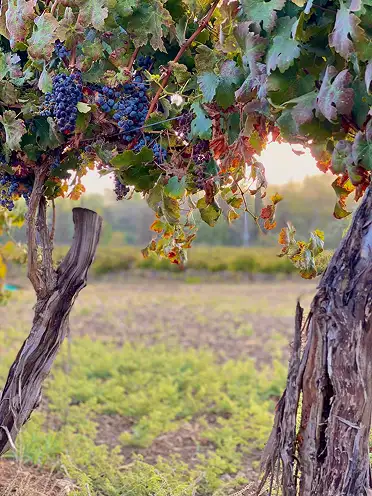
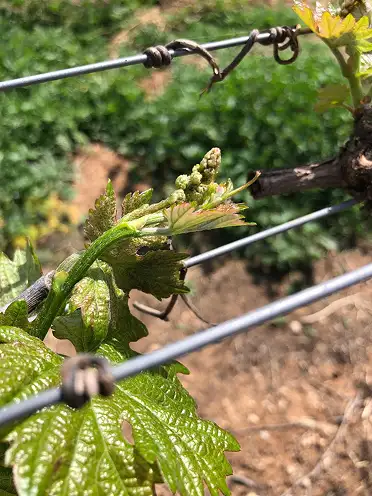


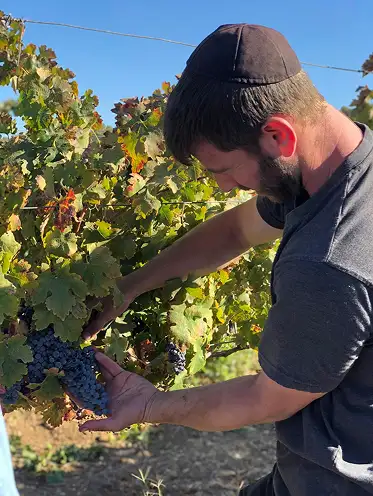
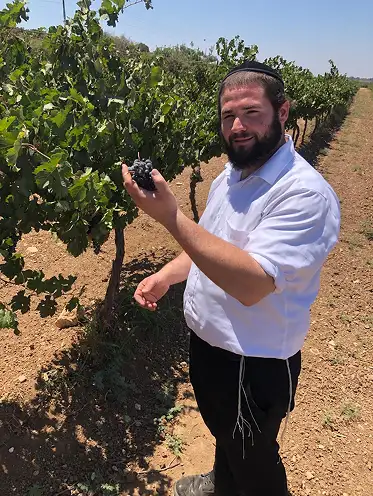

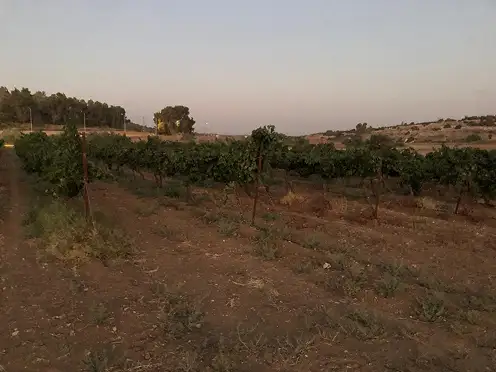
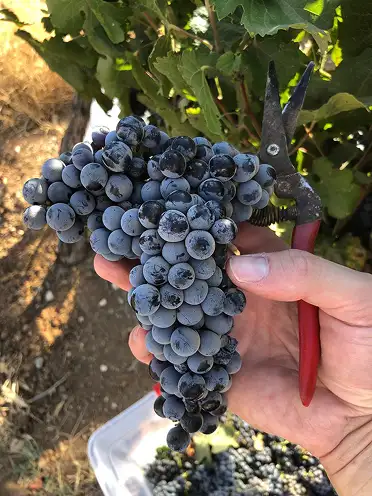
FAQ
What is natural wine?
Natural wine is made with as little interference as possible, letting the grapes speak for themselves. It’s usually fermented with natural yeasts and not heavily processed. The result is a lively, evolving wine that shows the true taste of the grapes and the place they grew — full of character, texture, and surprising flavors.
How is natural wine different from conventional wine?
Conventional wines are typically made with added sulfites, lab-grown yeasts, stabilizers, colorants, and other agents to control and standardize the outcome. Natural wine takes a different path — it’s not just about leaving the wine alone, but about intentionally guiding it with care and restraint. It’s a craft of knowing when not to intervene, allowing the grape, soil, and season to develop and express themselves in the most authentic way. The result is wine that feels alive — vibrant, textured, and always evolving.
Why does natural wine sometimes have fizz?
A gentle fizz in natural wine can happen when a bit of natural CO₂ from fermentation stays in the bottle. Since these wines aren’t heavily filtered or processed, that little sparkle is a natural part of the process. It adds a refreshing, lively edge — a playful expression of the wine’s energy and youth.
What makes the experience of drinking natural wine unique?
Natural wine doesn’t lack the qualities of traditional wine — it deepens them. Its uniqueness lies in purity, texture, and the way it evolves in the glass and bottle. Free from manipulation, it carries the raw character of the grape and land, often with an unexpected edge. You might notice layers of freshness, earthiness, or energy that shift with time. It’s not predictable — it’s expressive, dynamic, and real.
Is natural wine healthier?
Natural wine is often considered a cleaner option because it’s made with fewer interventions and minimal added ingredients. Many people say they feel better after drinking it — possibly due to the lower sulfite levels and absence of common processing agents. While it’s still alcohol and should be enjoyed responsibly, natural wine offers a more transparent, less industrial product.
Does natural wine age well?
Some natural wines are best enjoyed young and fresh. Others – especially structured reds or skin-contact whites – can evolve beautifully with age. It all depends on the grape, the method, and the winemaker’s intent.
Why is natural wine considered revolutionary?
Natural wine isn’t just a style – it’s a movement. It challenges the status quo of industrial winemaking. It celebrates transparency, sustainability, and authenticity. And it invites people to rediscover wine as a living, breathing expression of nature and place.
How should I store natural wine at home?
Natural wines are often more delicate and can be more sensitive to temperature changes and light. Store them in a cool, dark place with a stable temperature—ideally between 12-18°C (54-65°F). Keep the bottles lying on their side to keep the cork moist. Avoid heat, direct sunlight, and vibrations to help preserve the wine’s unique, vibrant character.
When and why should I decant natural wine?
Natural wine can be enjoyed straight from the bottle without any need for decanting. However, decanting can help open up its fresh, lively aromas and soften its textures. Since natural wines often have less filtration and minimal intervention, they might contain sediment or a bit of natural fizz. Decanting can separate …